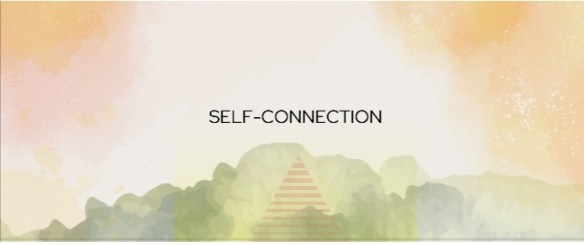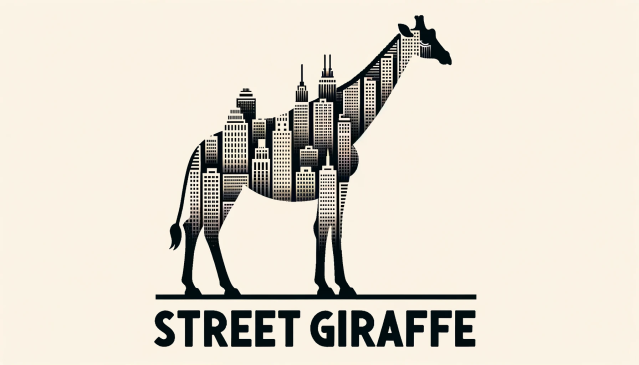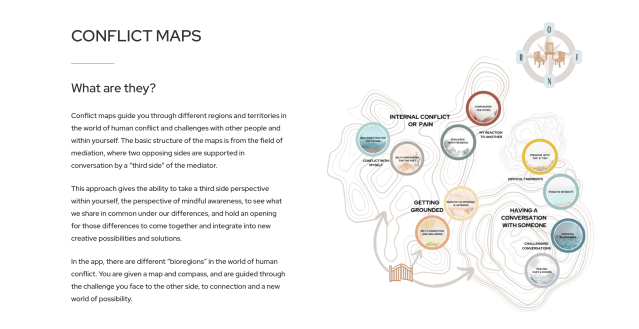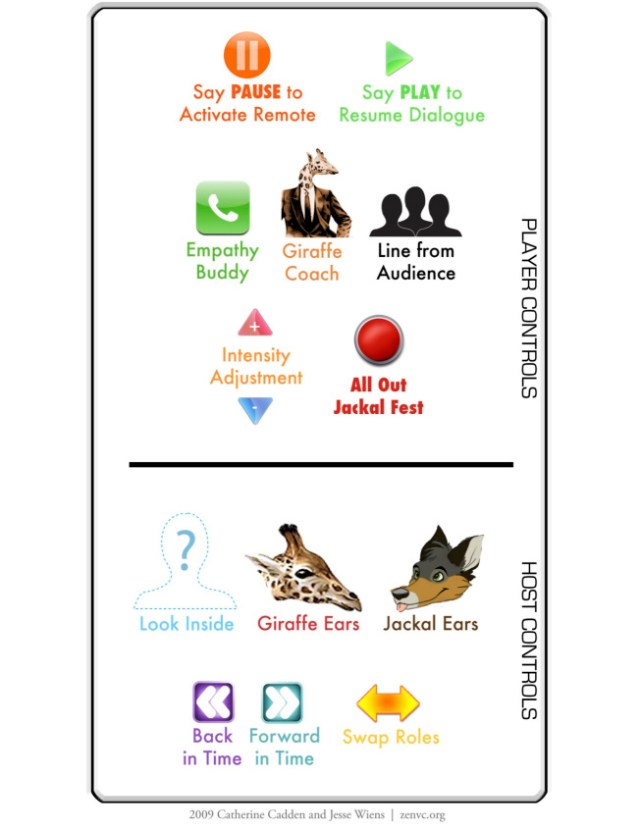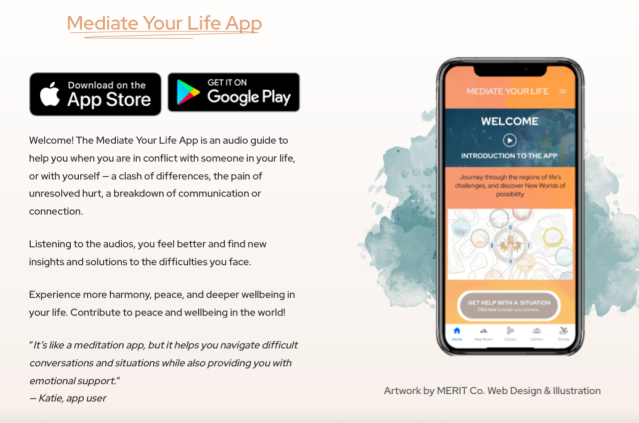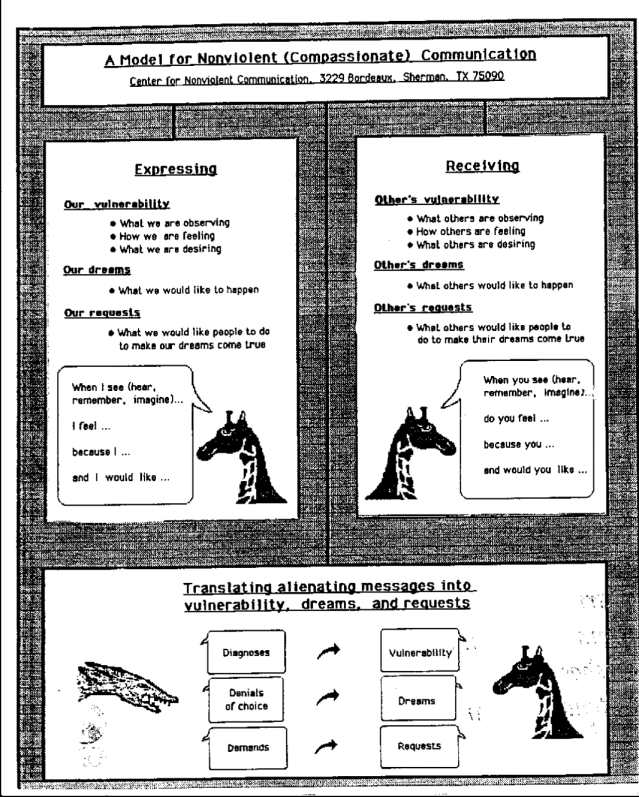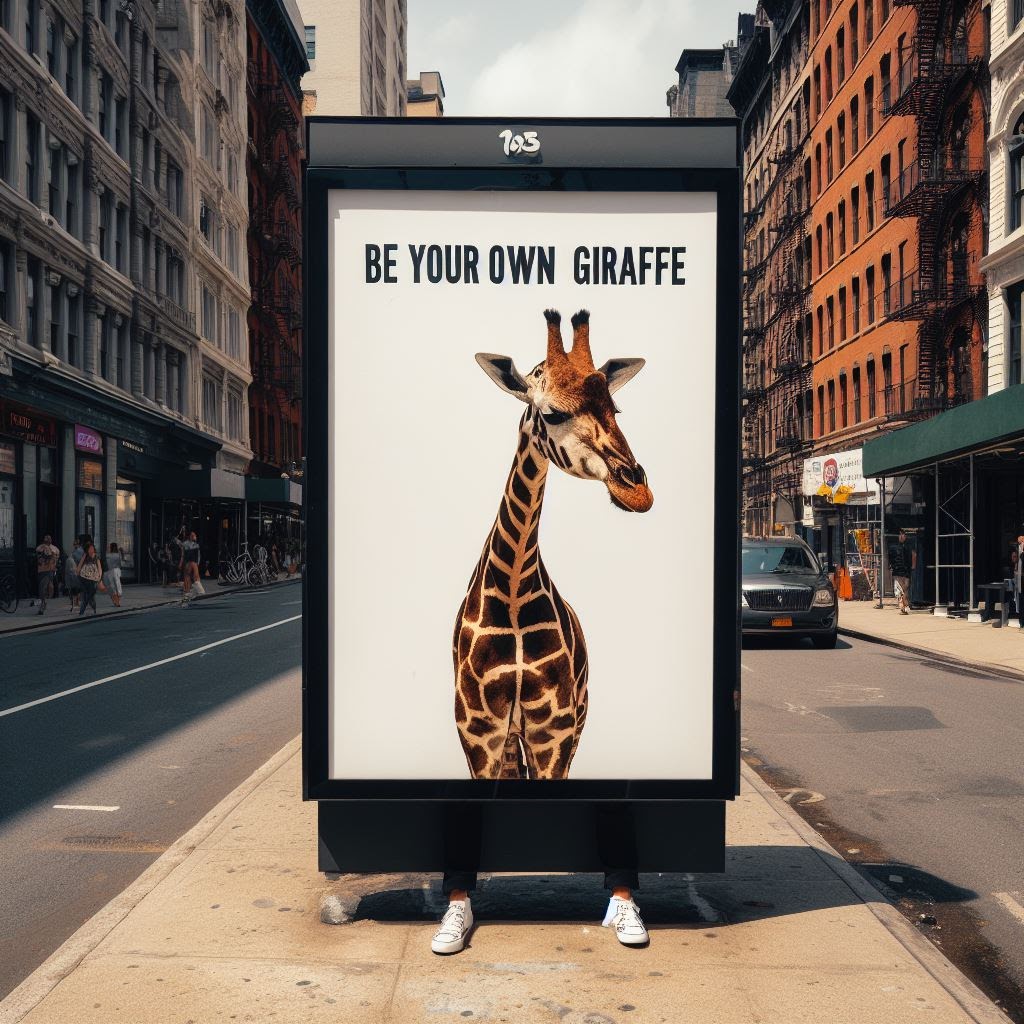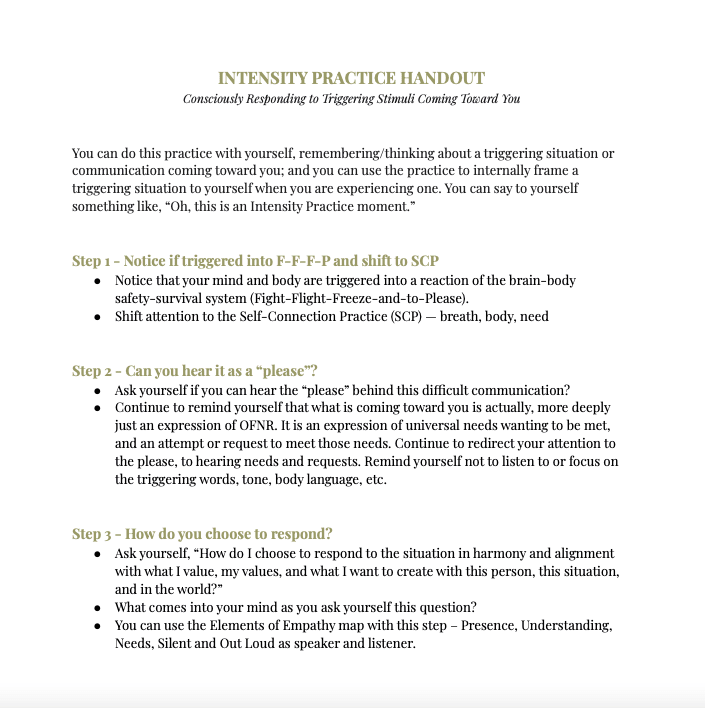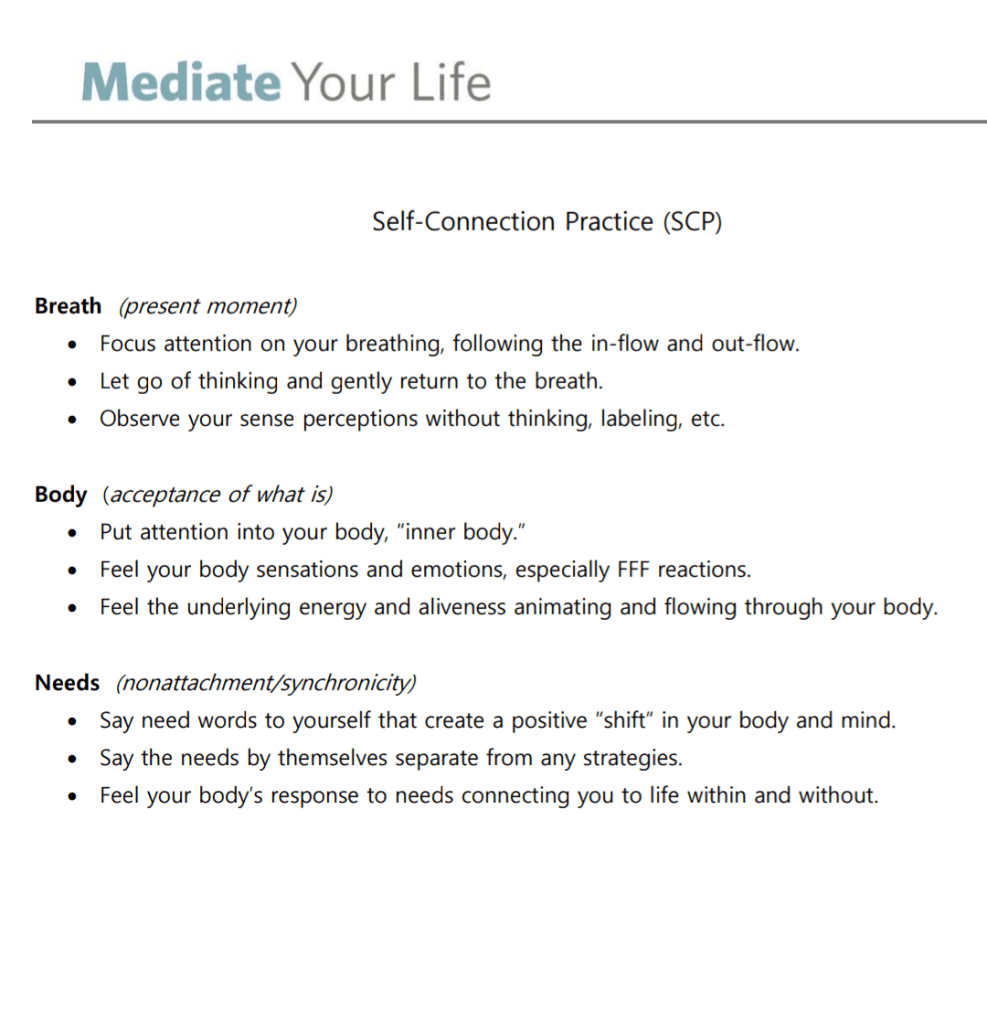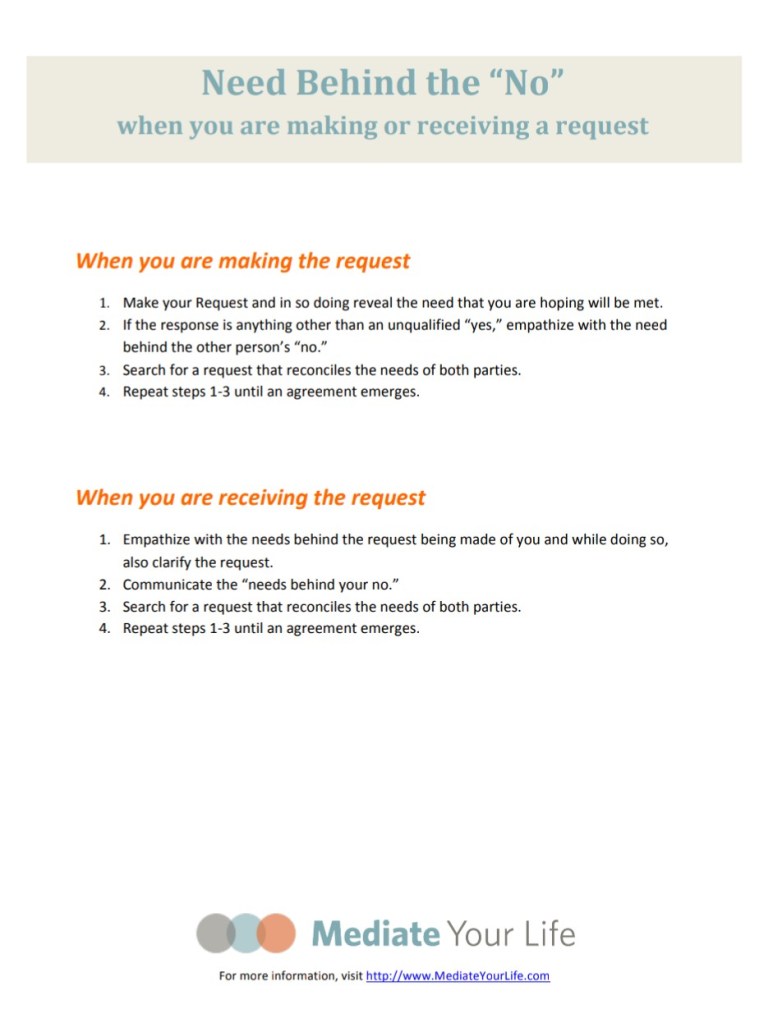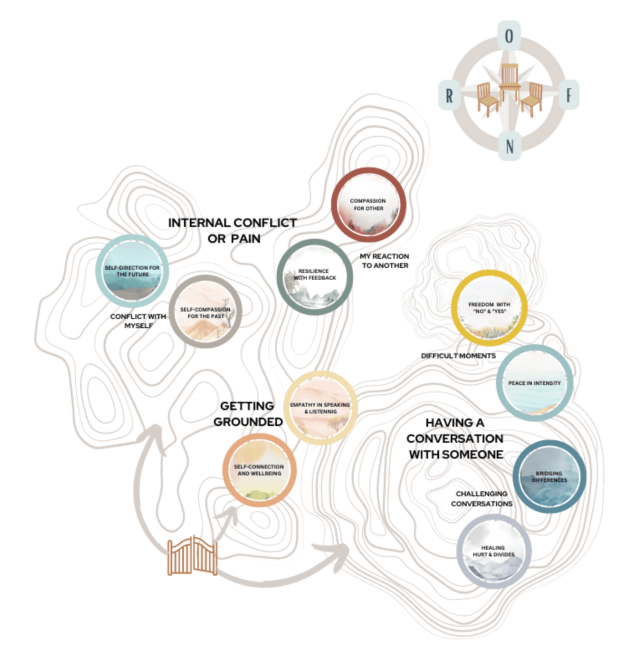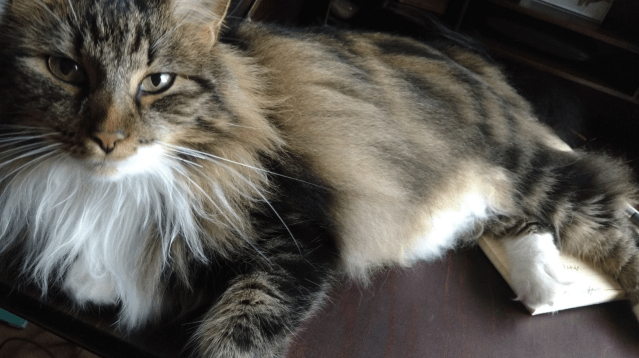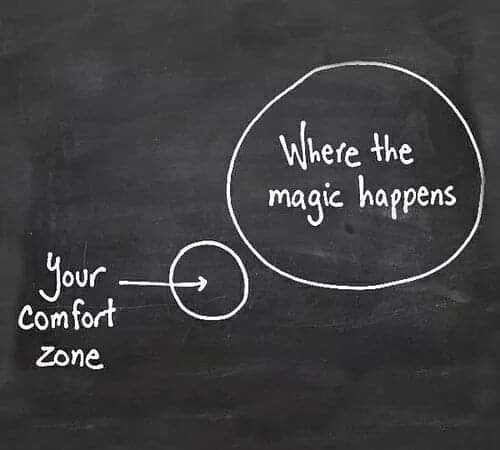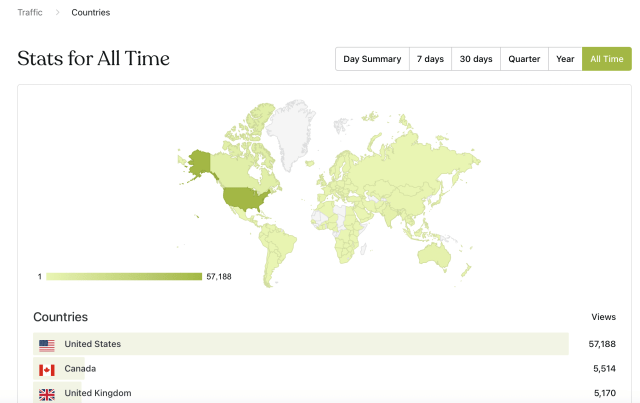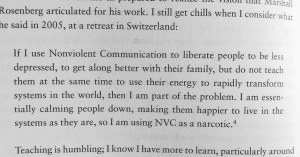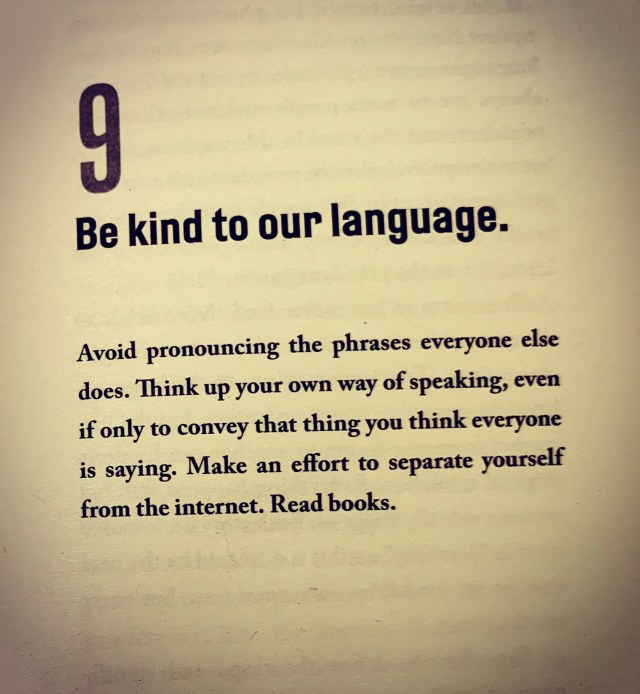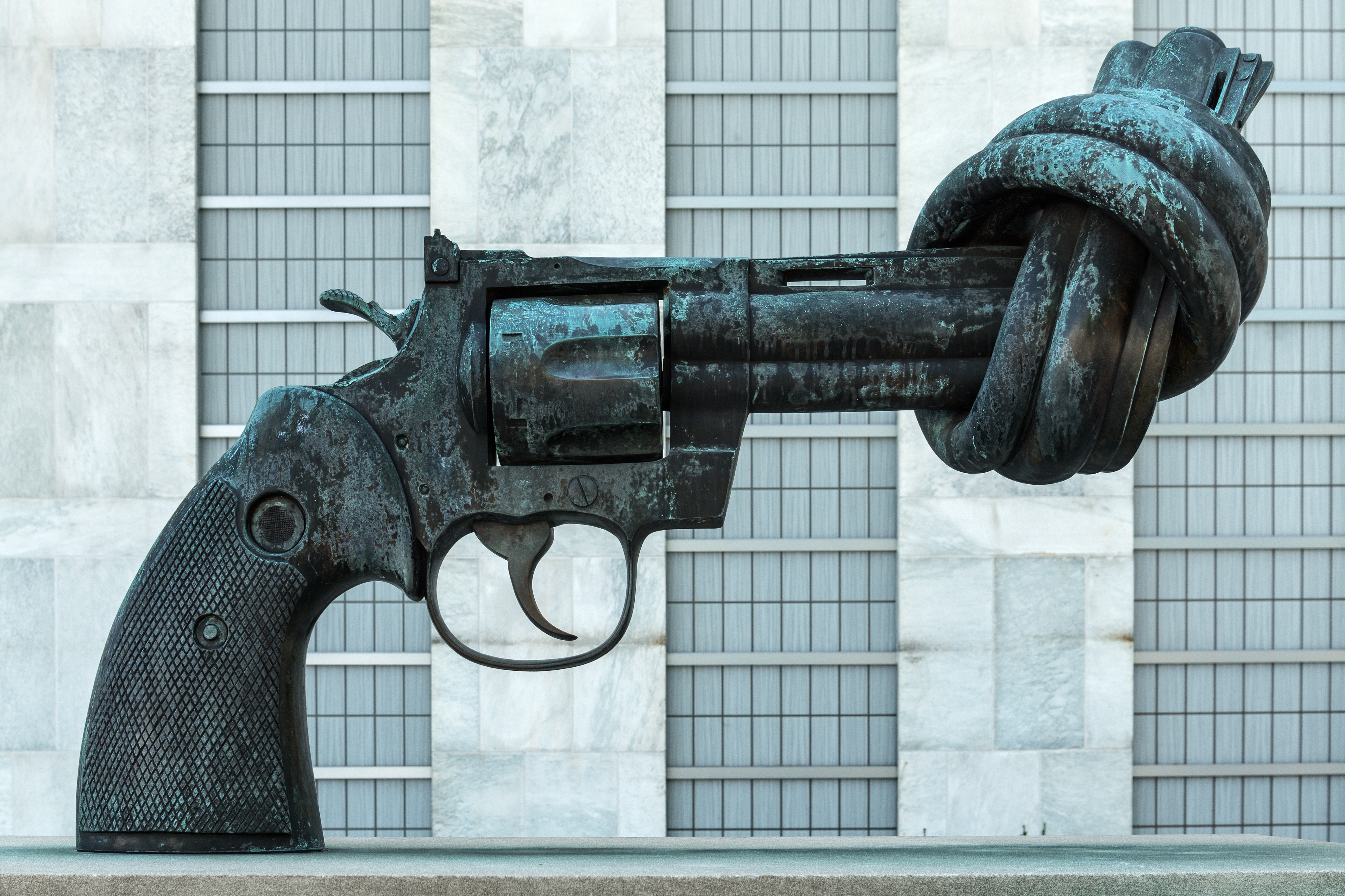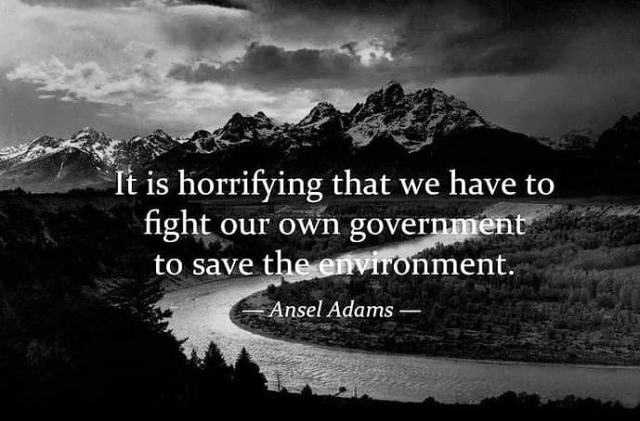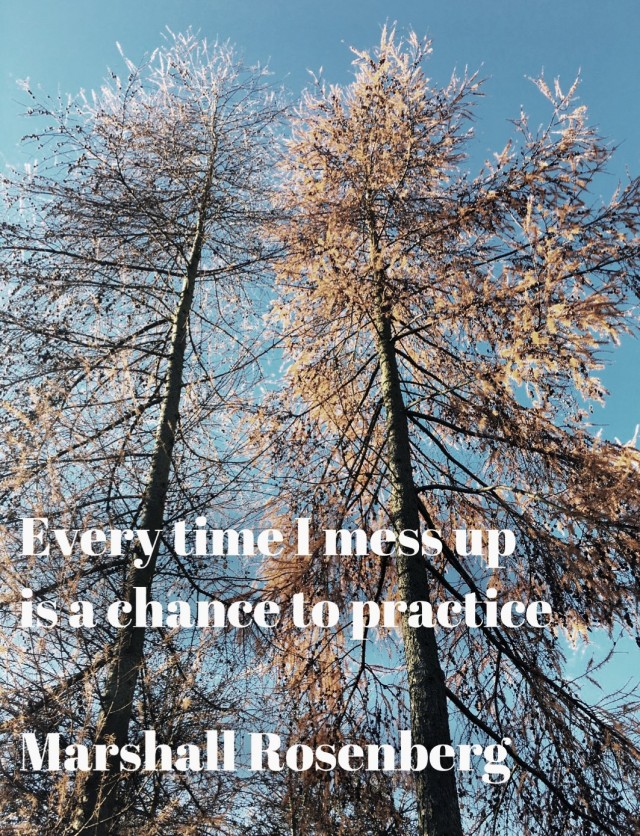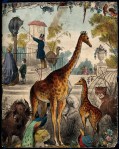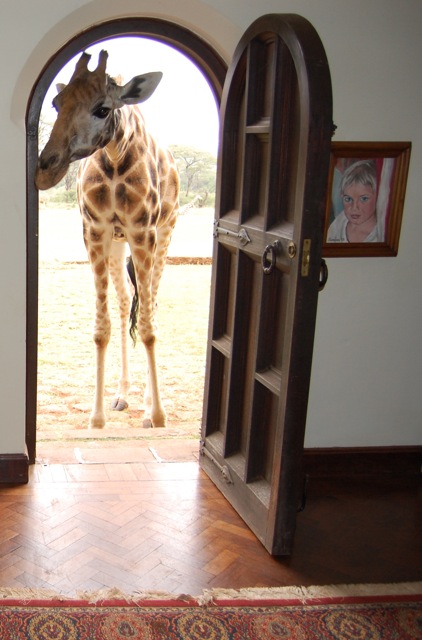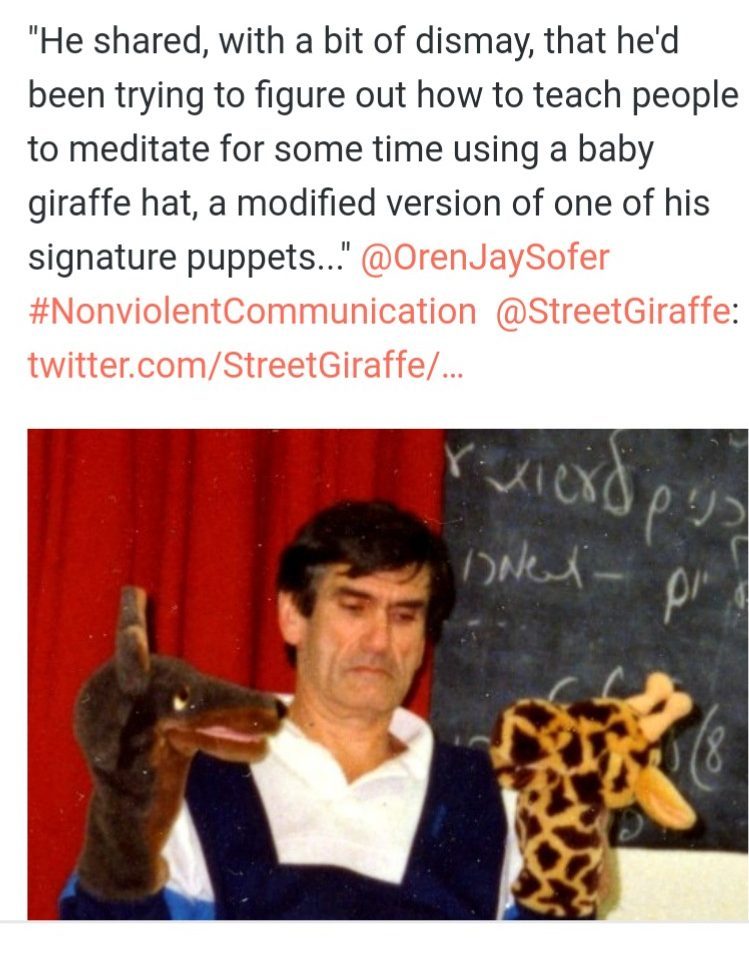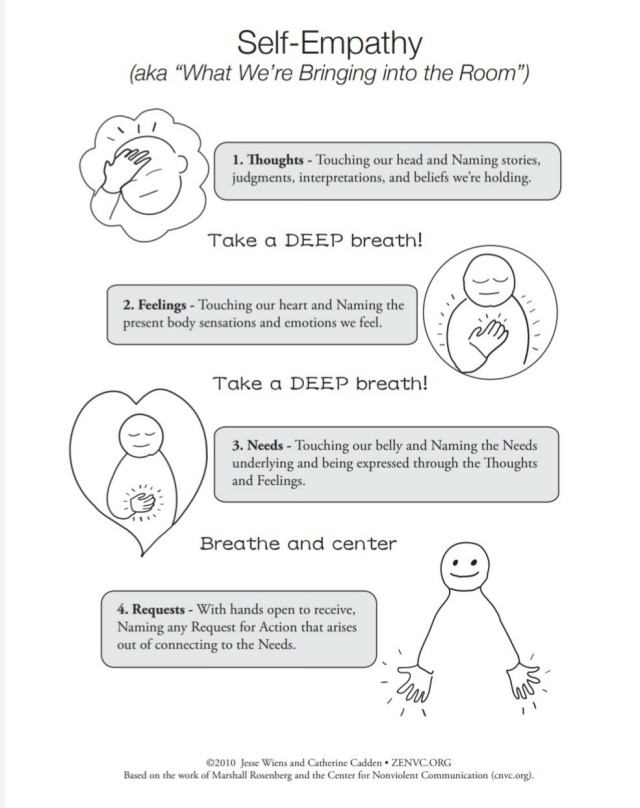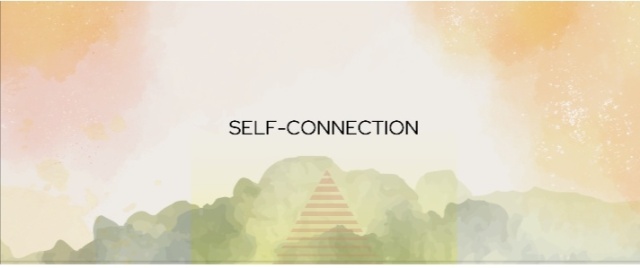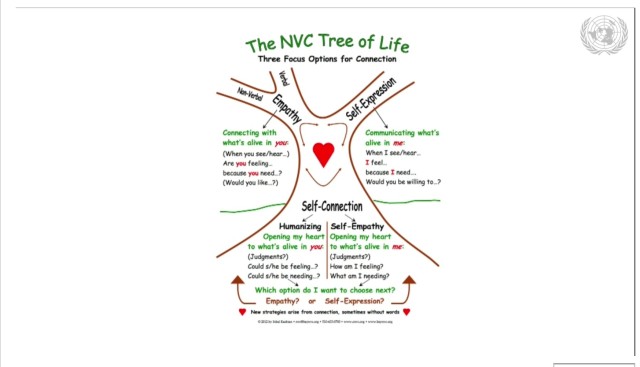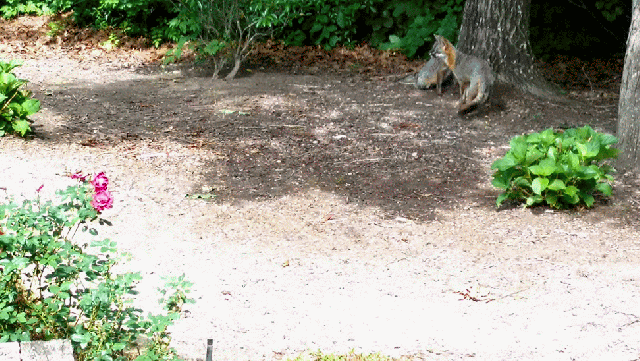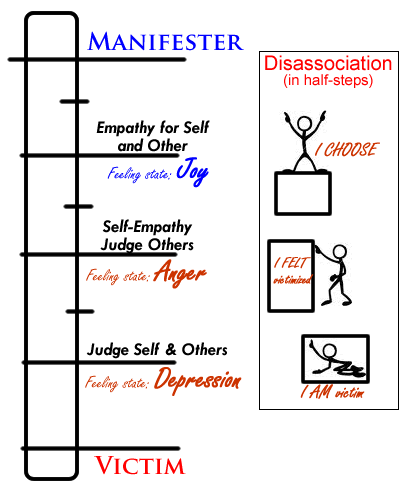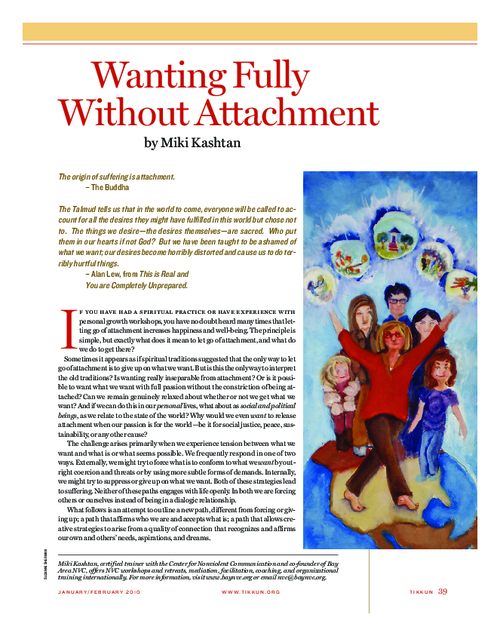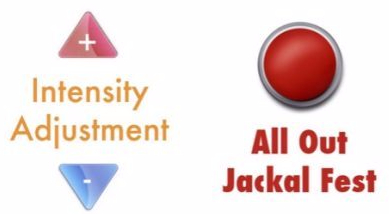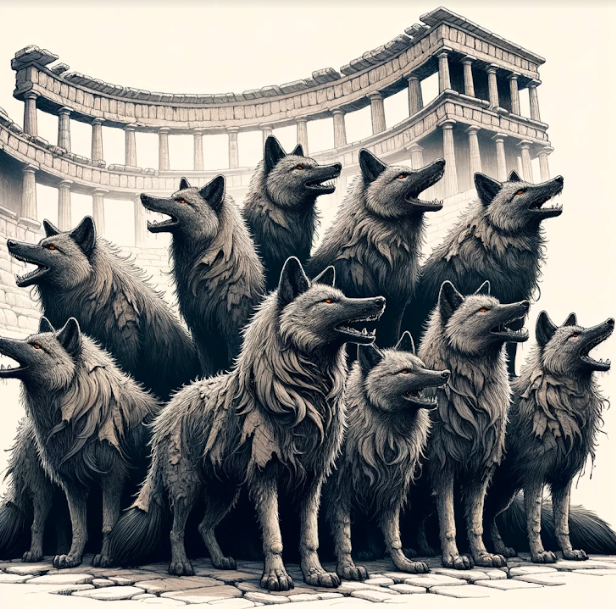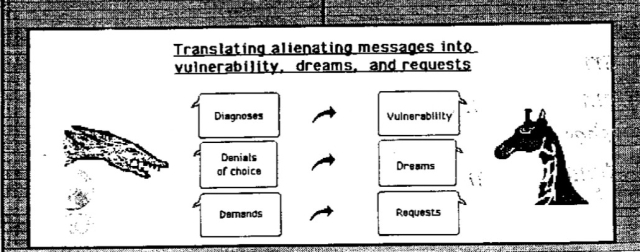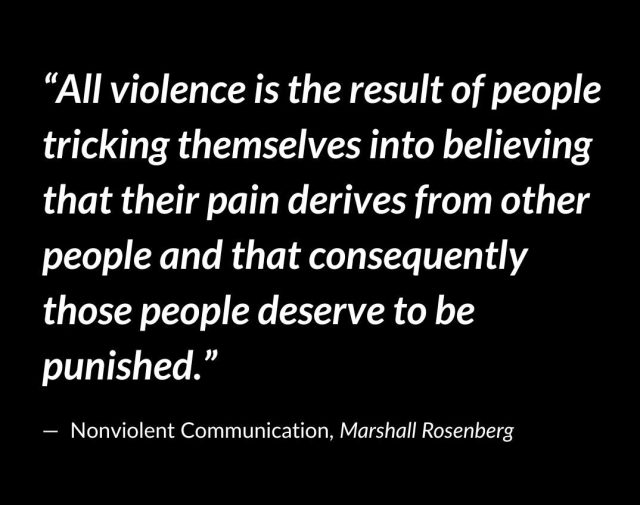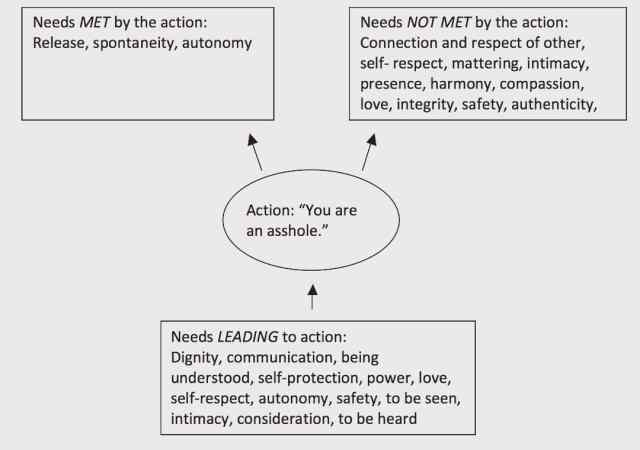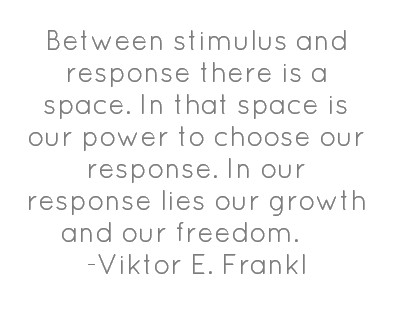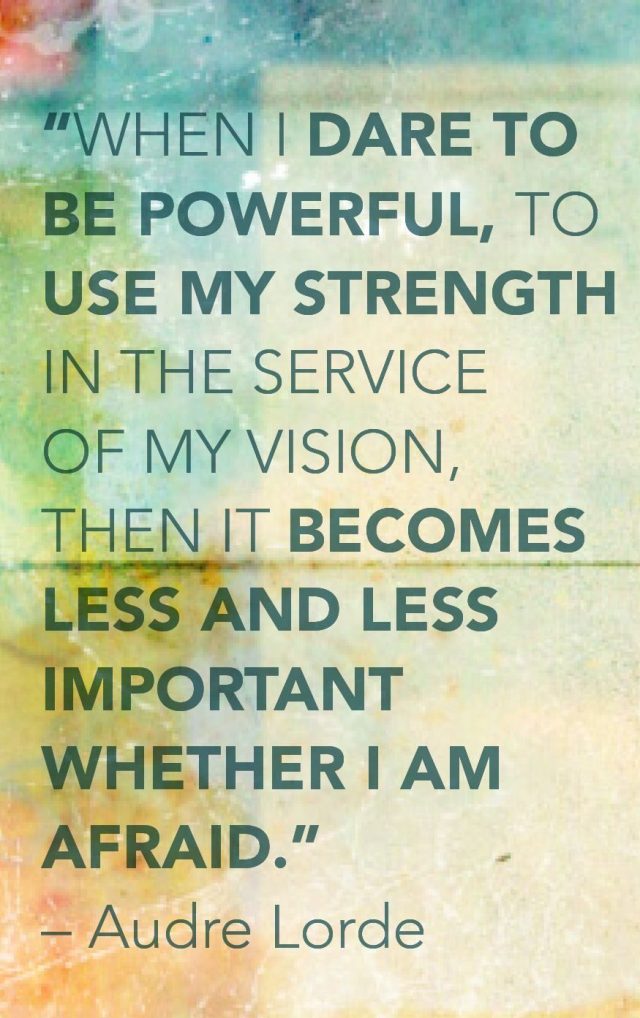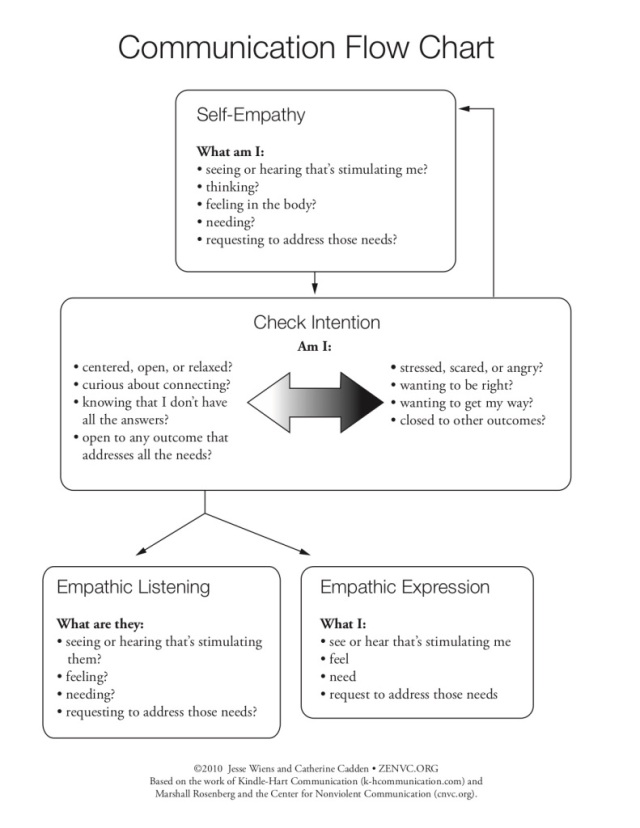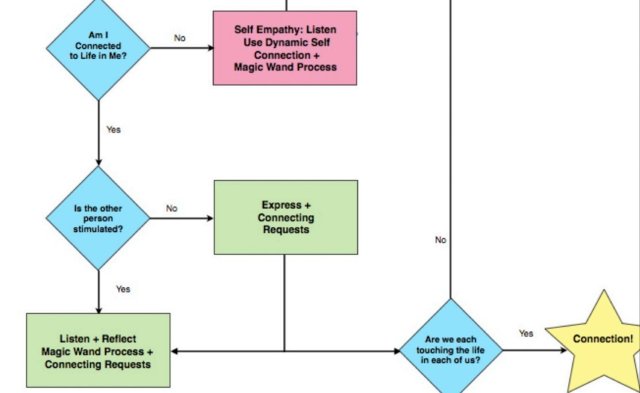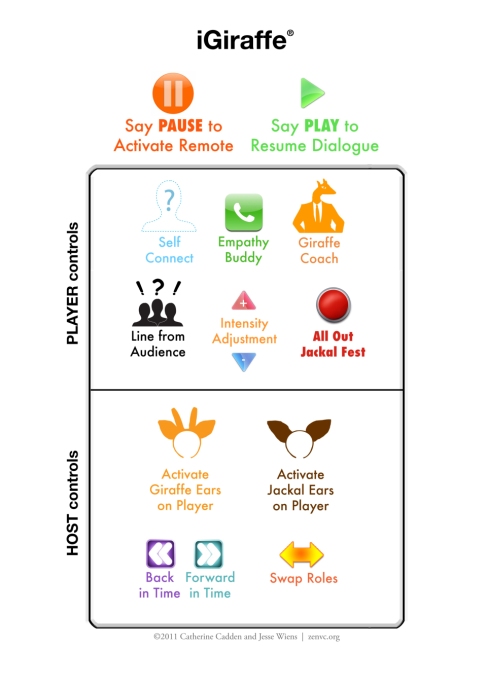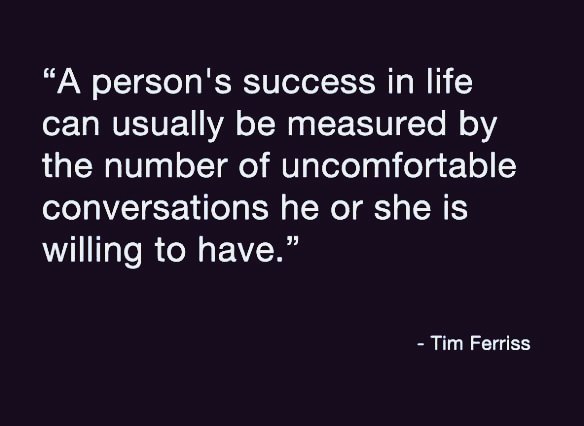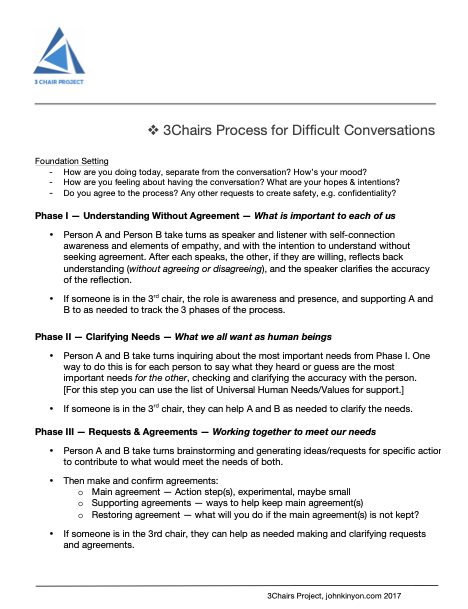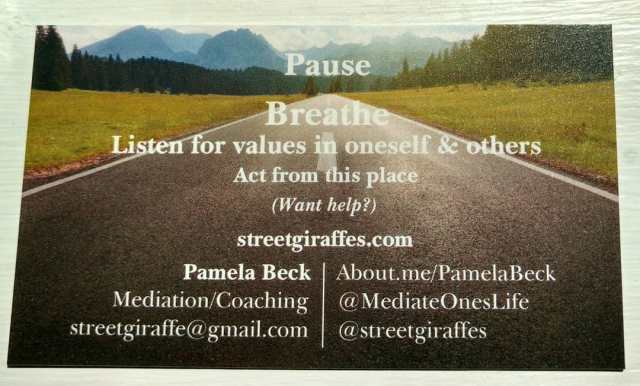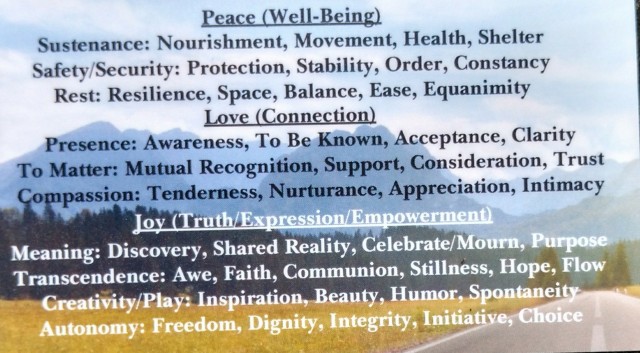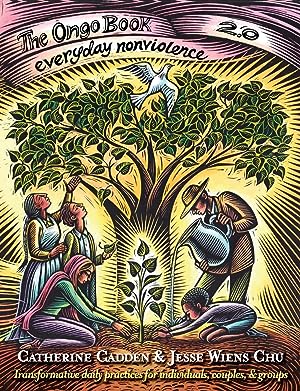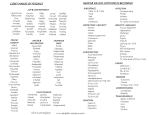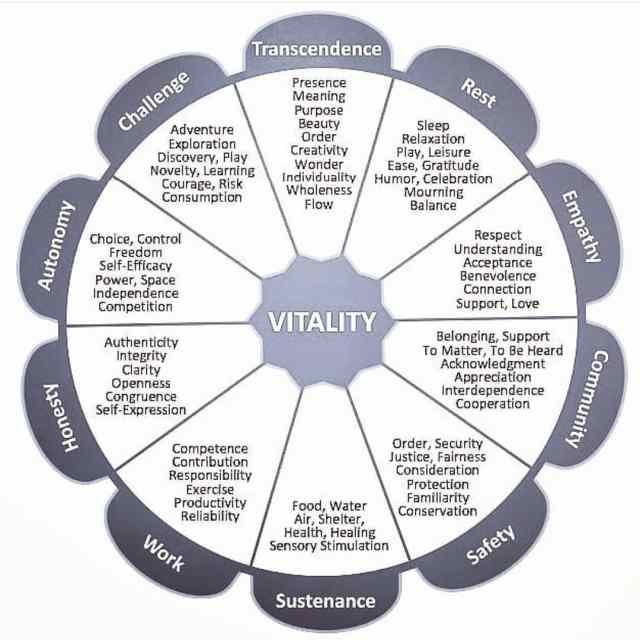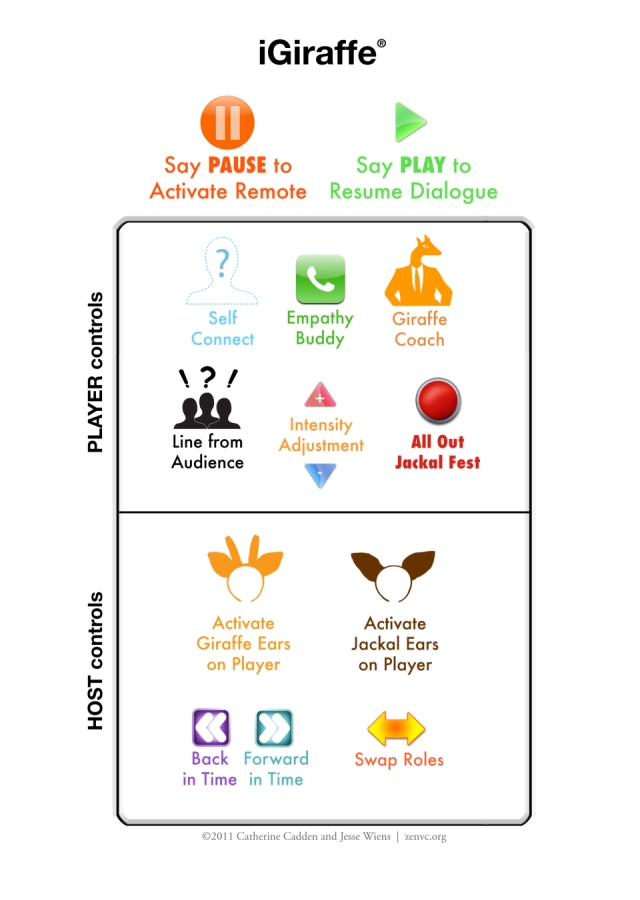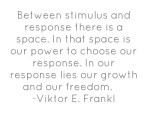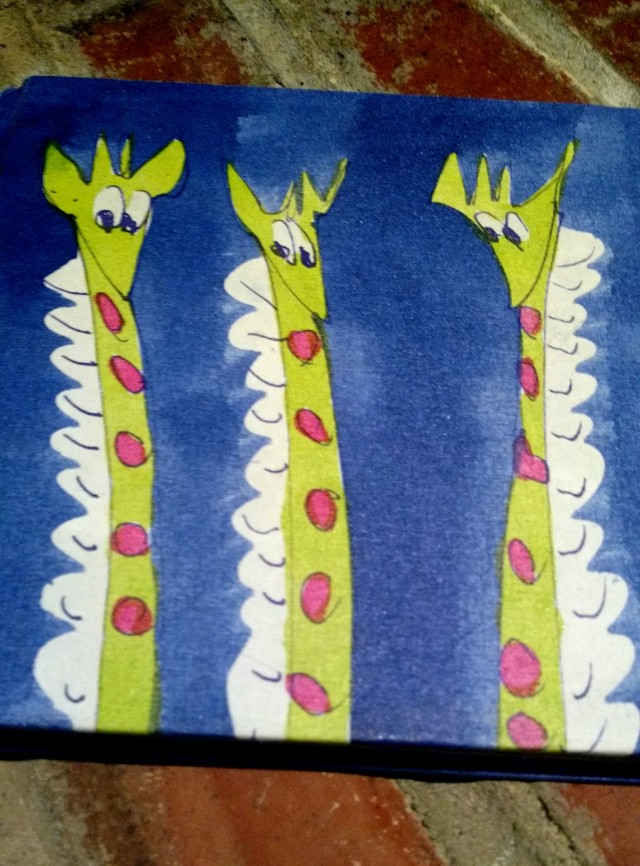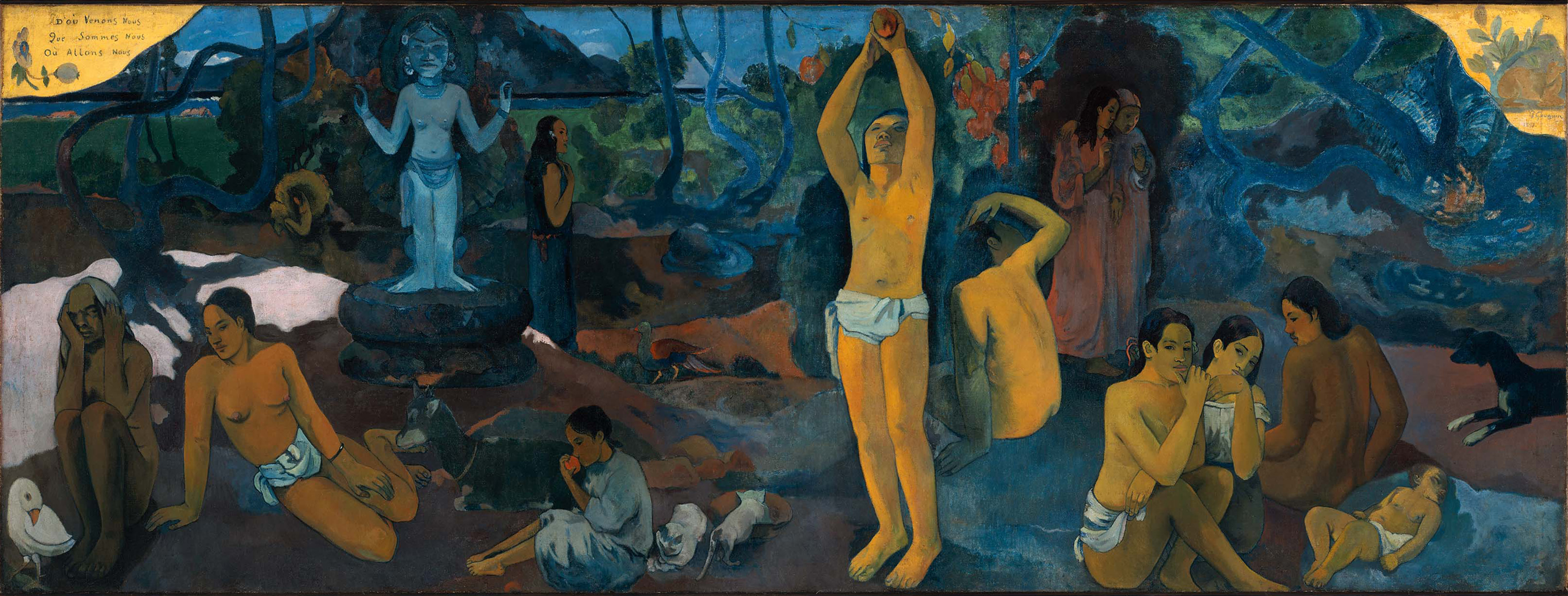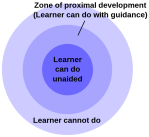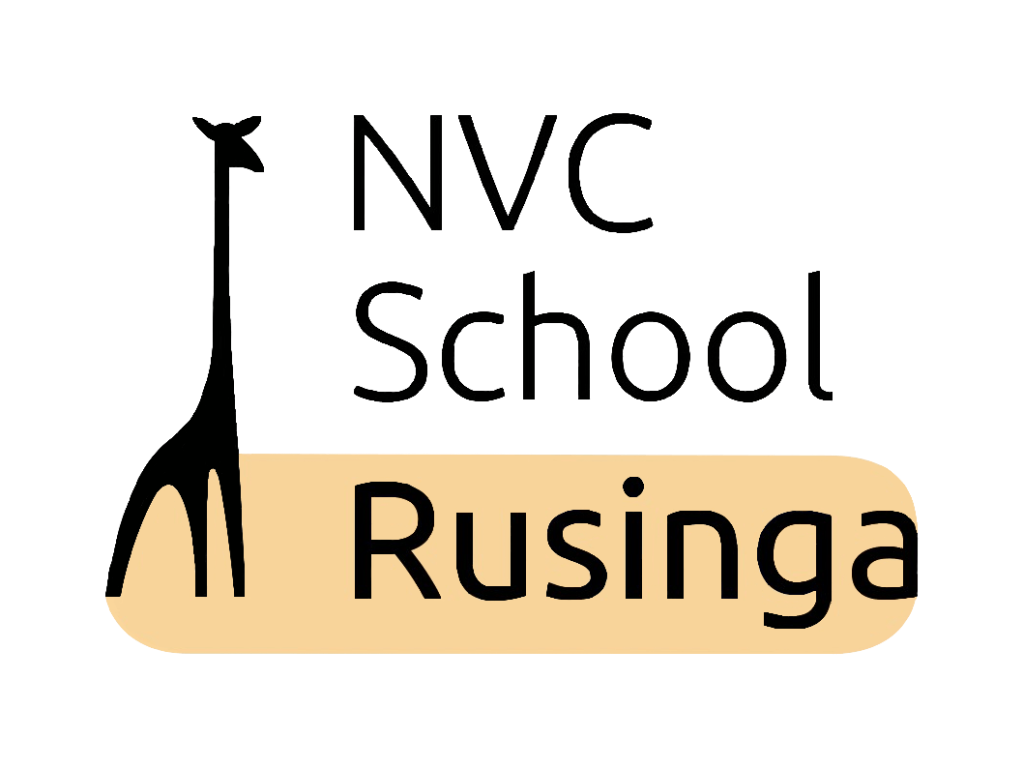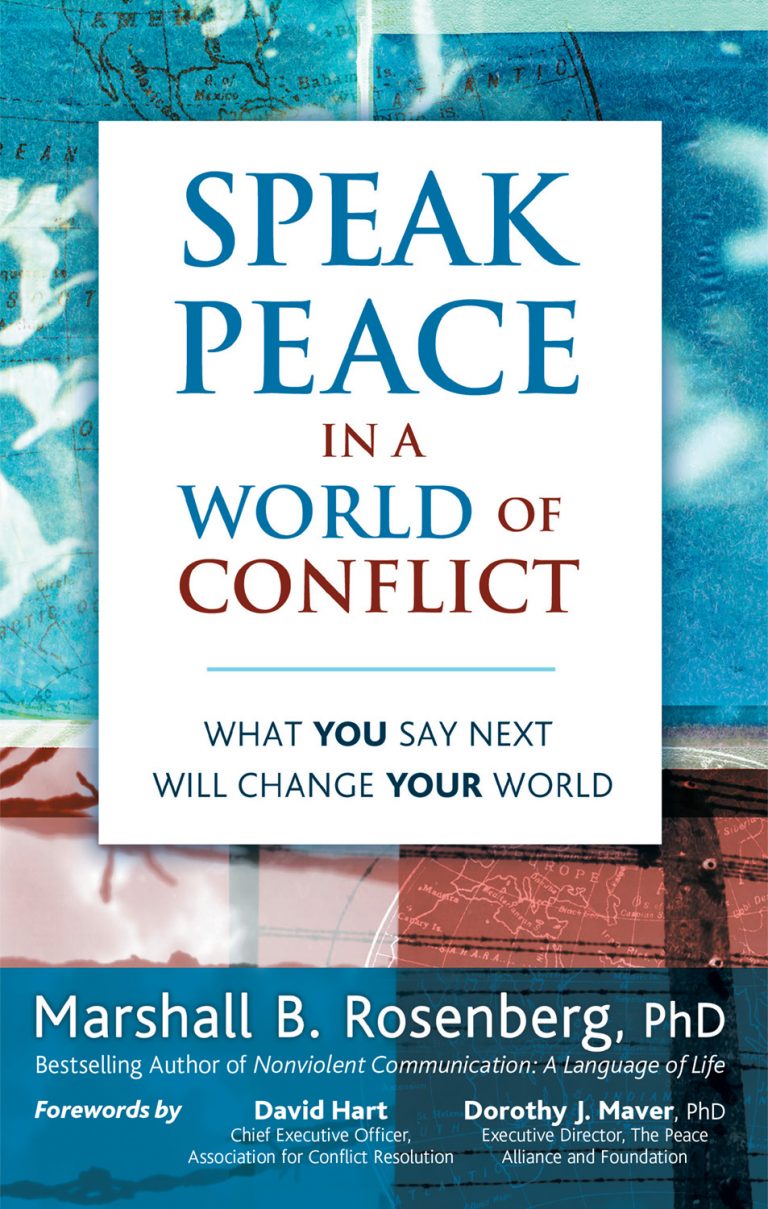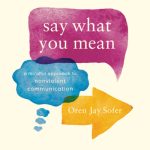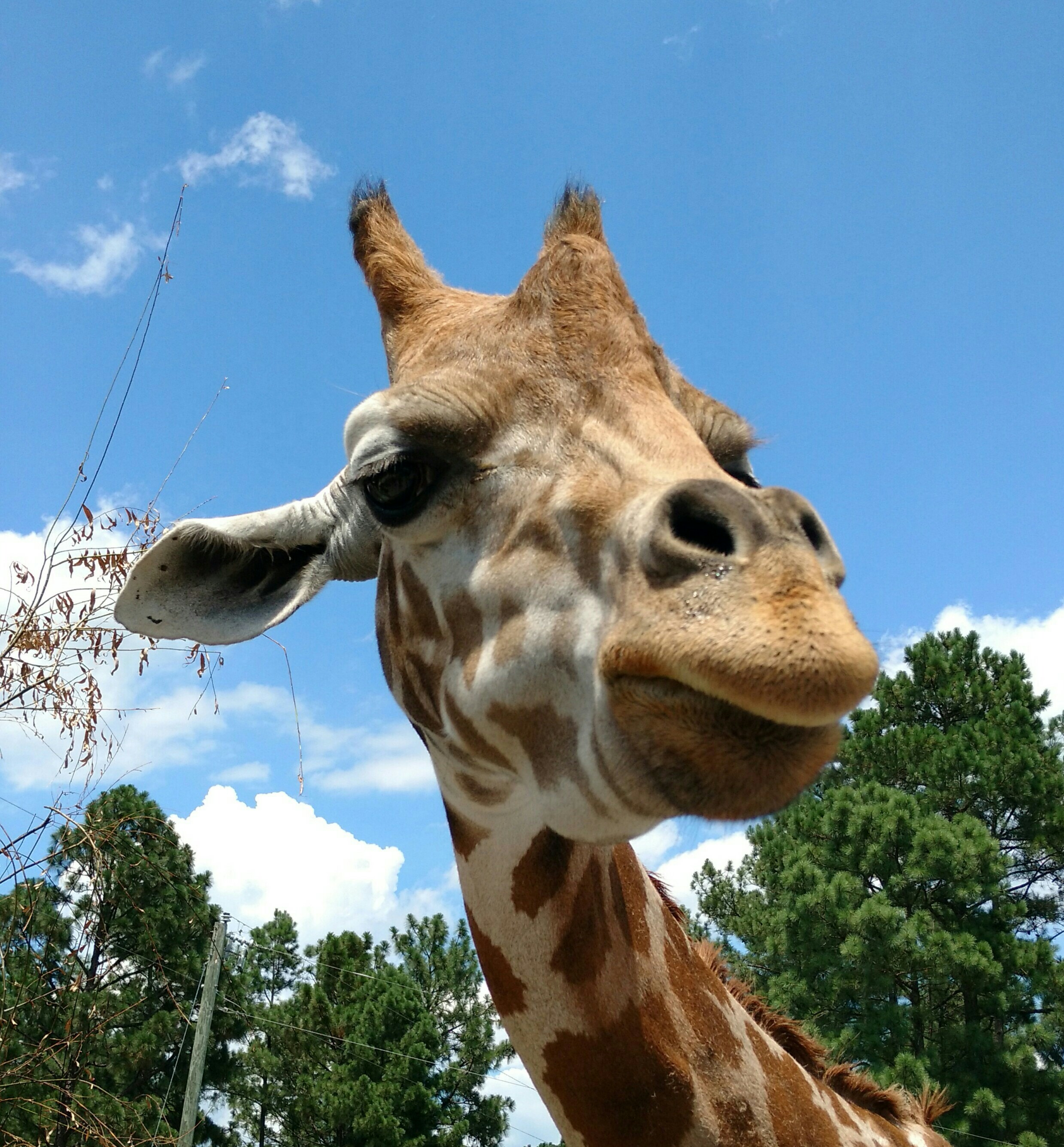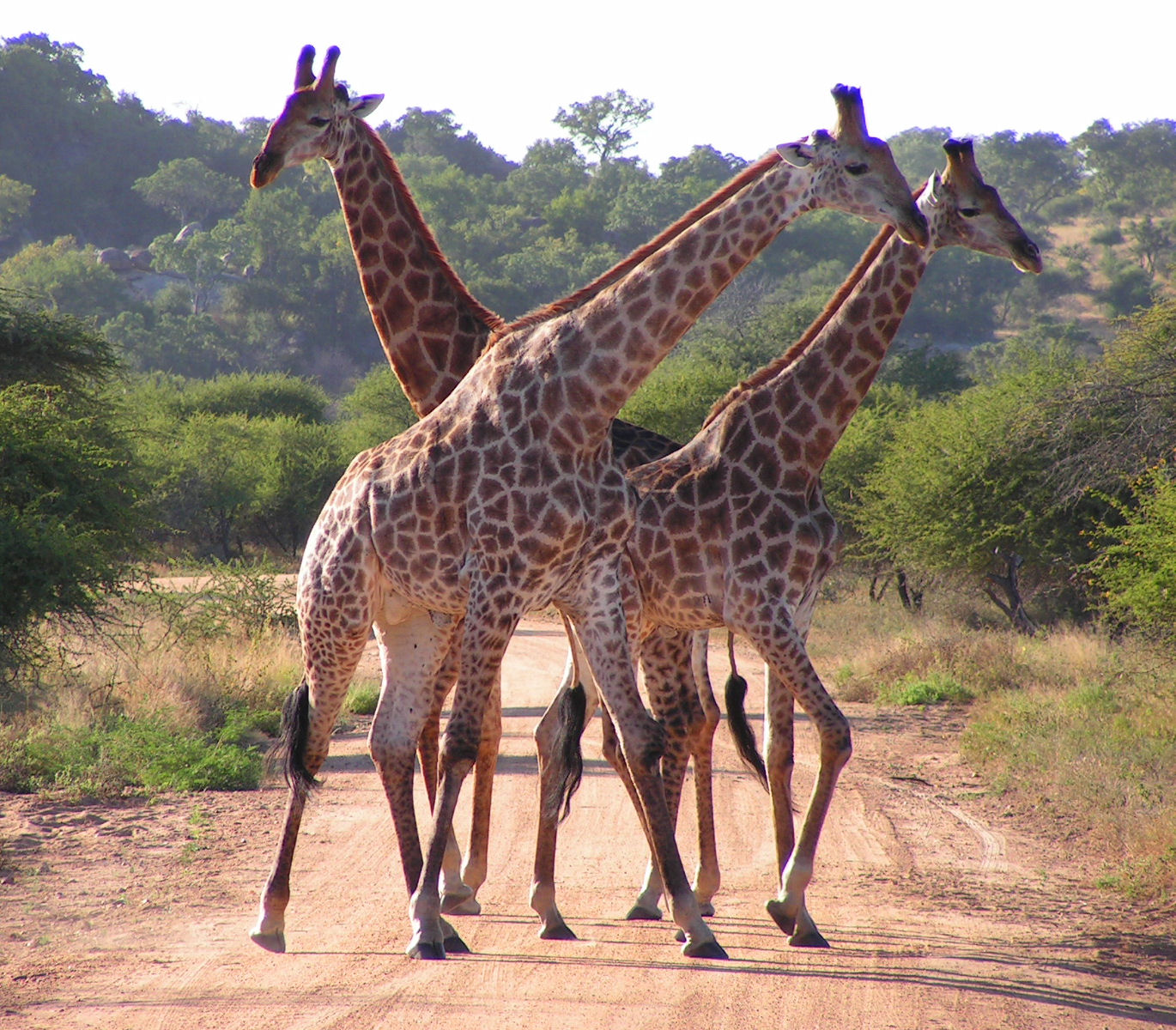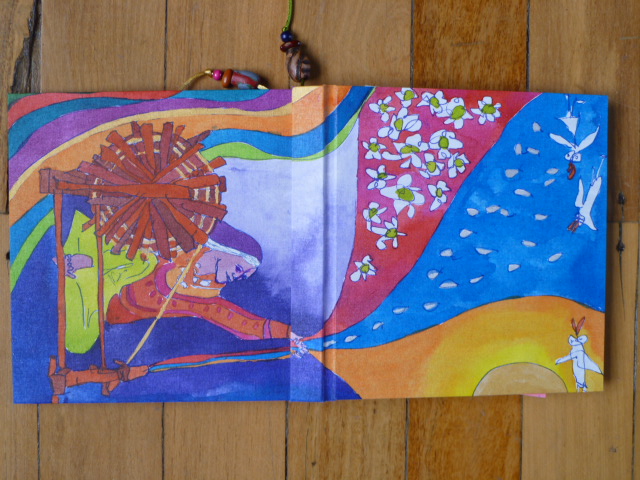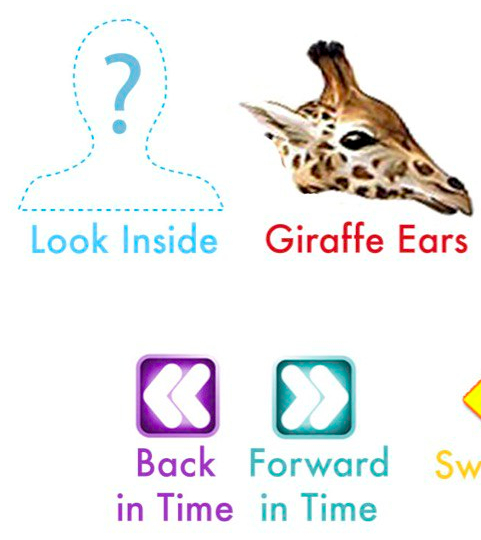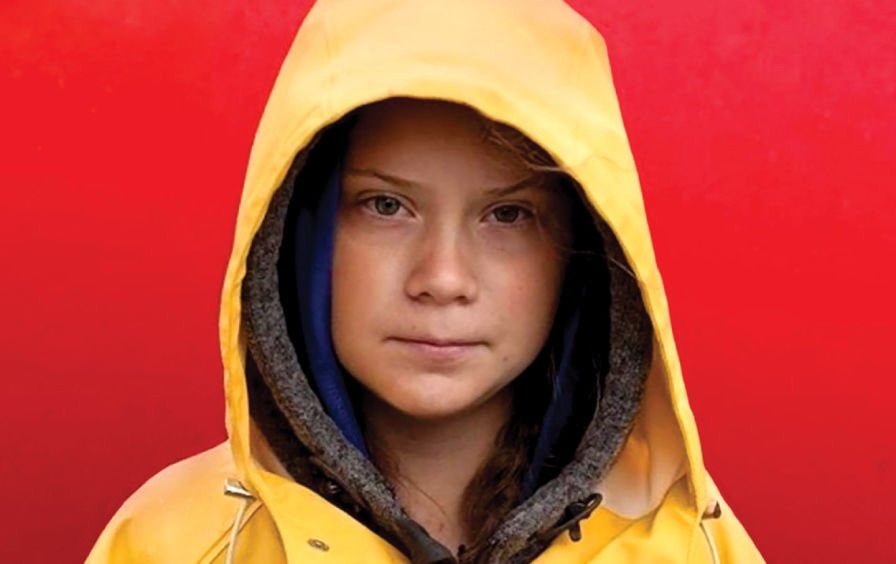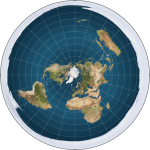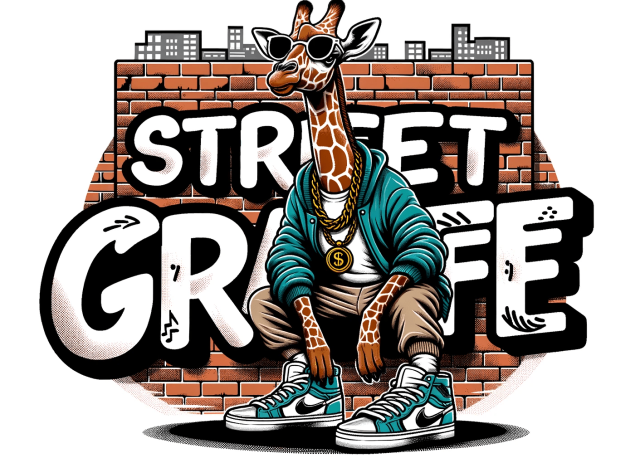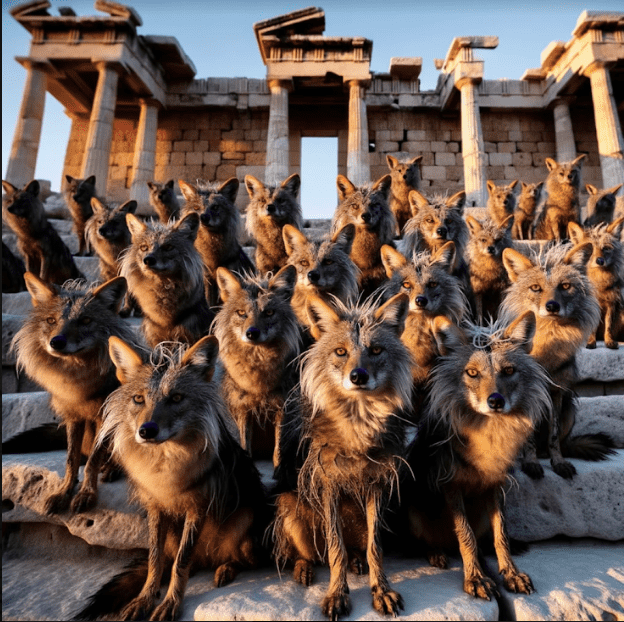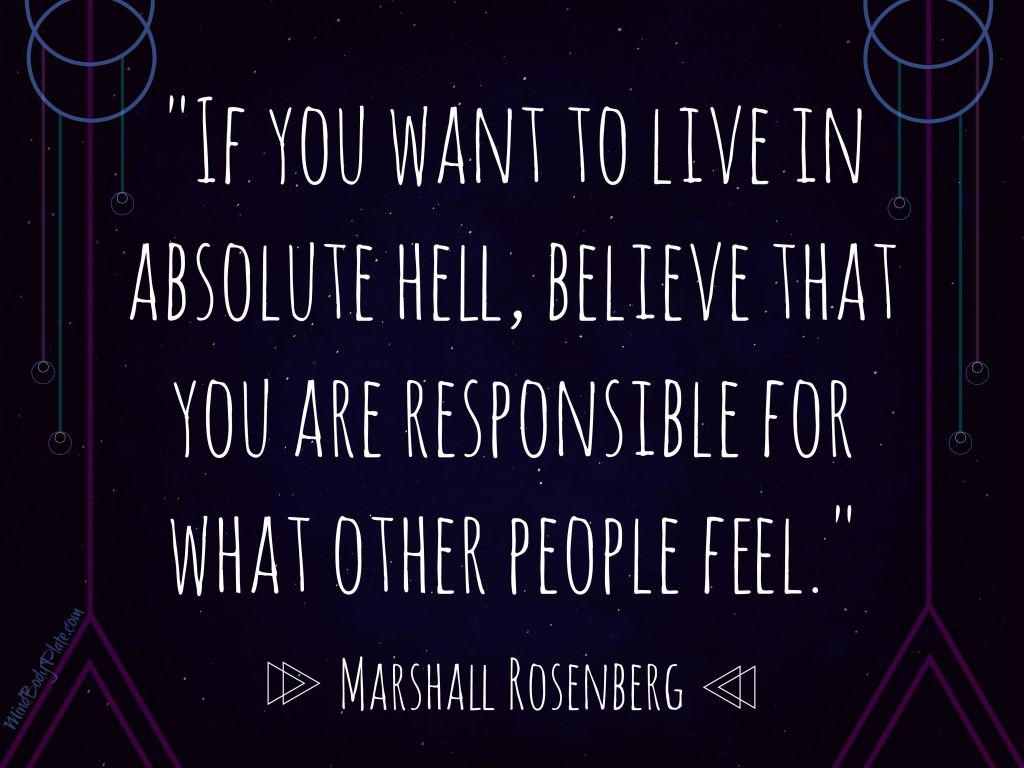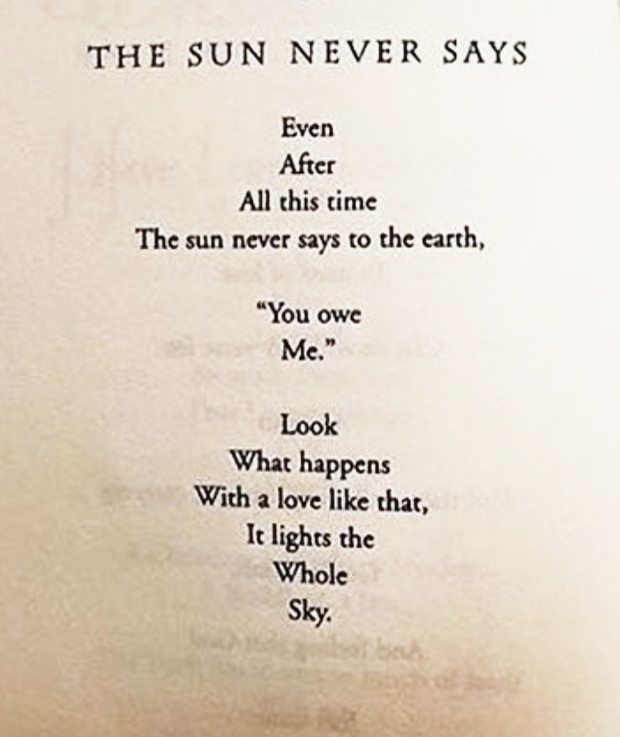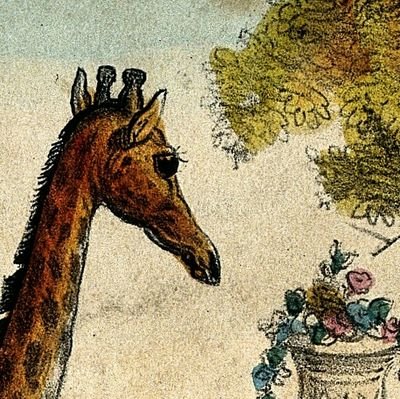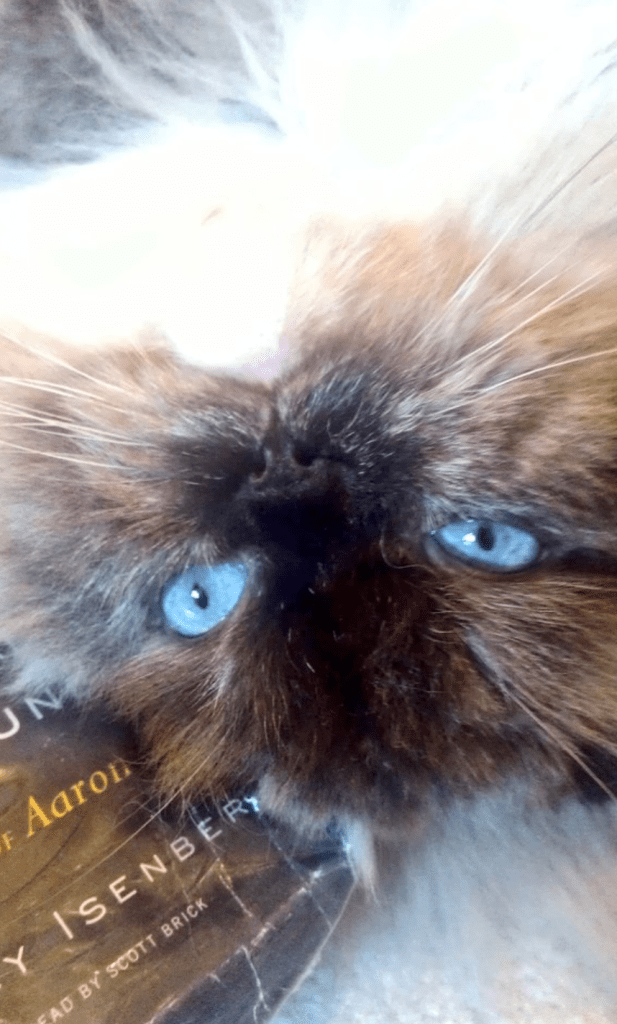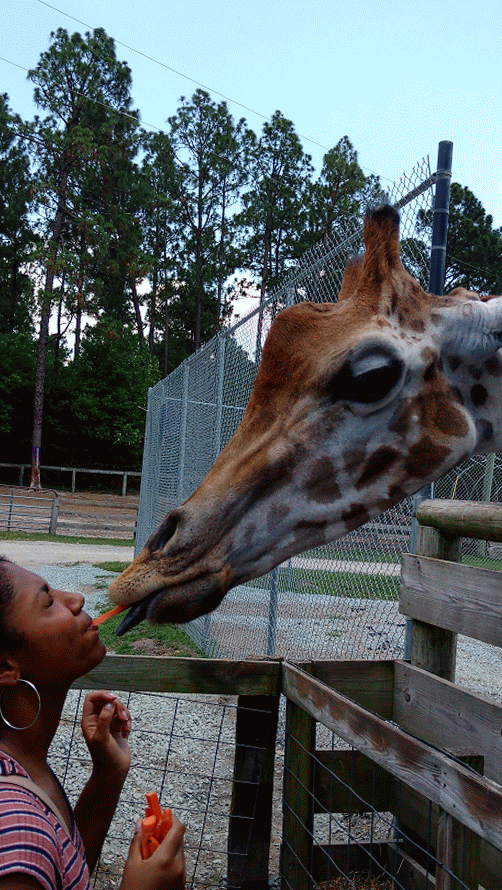Credit: Havang(nl) (via Wikimedia Commons)
Billy Joel: I once asked a great chef how he got to be so good. He said it’s all in the recovery—how you correct your mistakes.
Why We Need Both Grief and Gratitude – Tricycle
How Do We Deal With Regrets? – SoundCloud
Hindsight, Foresight and Insight – Dr. Yvette Erasmus
Excerpt:
“As we explored the varying roles of relational context, self-resourcing, intentionality and self-awareness in deciding how to proceed in charged conversations, a caller expressed feeling disheartened about how hard it is for her to switch into nonviolent consciousness once she is triggered.
I can relate.
In moments like these, I’ve learned to disengage temporarily, and then practice empowered self-care.
This means that I stop myself from analyzing and blaming the other person, and instead I ask myself questions like these:
How much of my intensity is about what is actually happening in this present moment? How much of my intensity is about my own chronically unmet needs? How much of my intensity is about patterns from my own life? What is deeply important to me here – what am I going to bat for exactly? Is this other person able to give me the empathy I need or do I need to get it elsewhere?
I also revisited the three powerful kinds of sight we develop to support us as we learn and grow:
Hindsight. Foresight. Insight.”
‘An NVC practice as dustpan & brush…’
– Kit Miller
See also:
Mourning & Beauty of the Needs
Mourn, Celebrate, Learn
3Chairs-Process-for-Difficult-Conversations
We Aren’t Built to Live in the Moment – The New York Times
Beneficial Regret |
Acknowledging and learning from one’s missed opportunity to meet needs, without guilt, shame, or self-punishment. |
(via Matrix)
“To dwell in the here and now does not mean you never think about the past or responsibly plan for the future. The idea is simply not to allow yourself to get lost in regrets about the past or worries about the future. If you are firmly grounded in the present moment, the past can be an object of inquiry, the object of your mindfulness and concentration. You can attain many insights by looking into the past. But you are still grounded in the present moment.”
― Thich Nhat Hanh, The Art of Power
Matrix | Pathways to Liberation
(beneath is courtesy of the work of Jim and Jori Manske)
Beneficial regret: Acknowledging and learning from oneʹs missed opportunity to meet needs, without guilt, shame, or self‐punishment.
Unskilled: Takes responsibility for the feelings of others with guilt and/or shame, or defends oneself; apologizes to protect oneself by assuaging anotherʹs feelings.
Awakening: Newfound awareness that othersʹ feelings are caused by their needs, and may want others to ʺget over it”. Heightened awareness of habit of self‐ blame.
Capable: Increasing ability to transform guilt into learning. Fostering willingness to seek connection with others (with empathy and honesty) when events did not work for others.
Integrated: Consistent willingness to openly own oneʹs part in outcomes that did not meet needs; willingness to feel and express regret; seeks learning and growth.

Positive Intent | Need Missed
____________________________________
| Action Taken (as observation) | Positive Intent – Related Need(s) | Need(s) Not Attended To |
| Arriving later than time agreed to | Efficacy (completed task) | Consideration (of another) |
| Chose not to ____ | Need X | Need Y |
| Said, “______” | Need X | Need Y |
Step 1: Which need animated your conduct (positive intent)?
Step 2: Which need wasn’t attended to in how things unfolded?
| Sustenance | Order | Belonging | Meaning | Transcendence | |
| Security | Love | To Matter | Honesty | Freedom |
Step 3: Swirl both needs together, let it marinate a bit (sleep on it, take a walk/shower, etc.), and then see what you’ve discovered.
Needs consciousness |
Awareness of (and the willingness to honor) needs, the essential universal elemental qualities of life (like sustenance, love and meaning).
(via Matrix) |
“We may believe that mistakes have been made already and that we cannot go back to the past to change things. When we look deeply into the relative nature of time, we see that the past has created the present. If we seize the present moment with mindfulness, we are in touch with the past. We can actually go back to the past, while staying firmly rooted in the present moment, and heal the past. We forgive ourselves for our mistakes, knowing we didn’t have enough wisdom or the right conditions at that time to do better. We transform our regrets in the present into compassion and understanding, and in this way we also transform the past.” ~ Thich Nhat Hanh, Savor
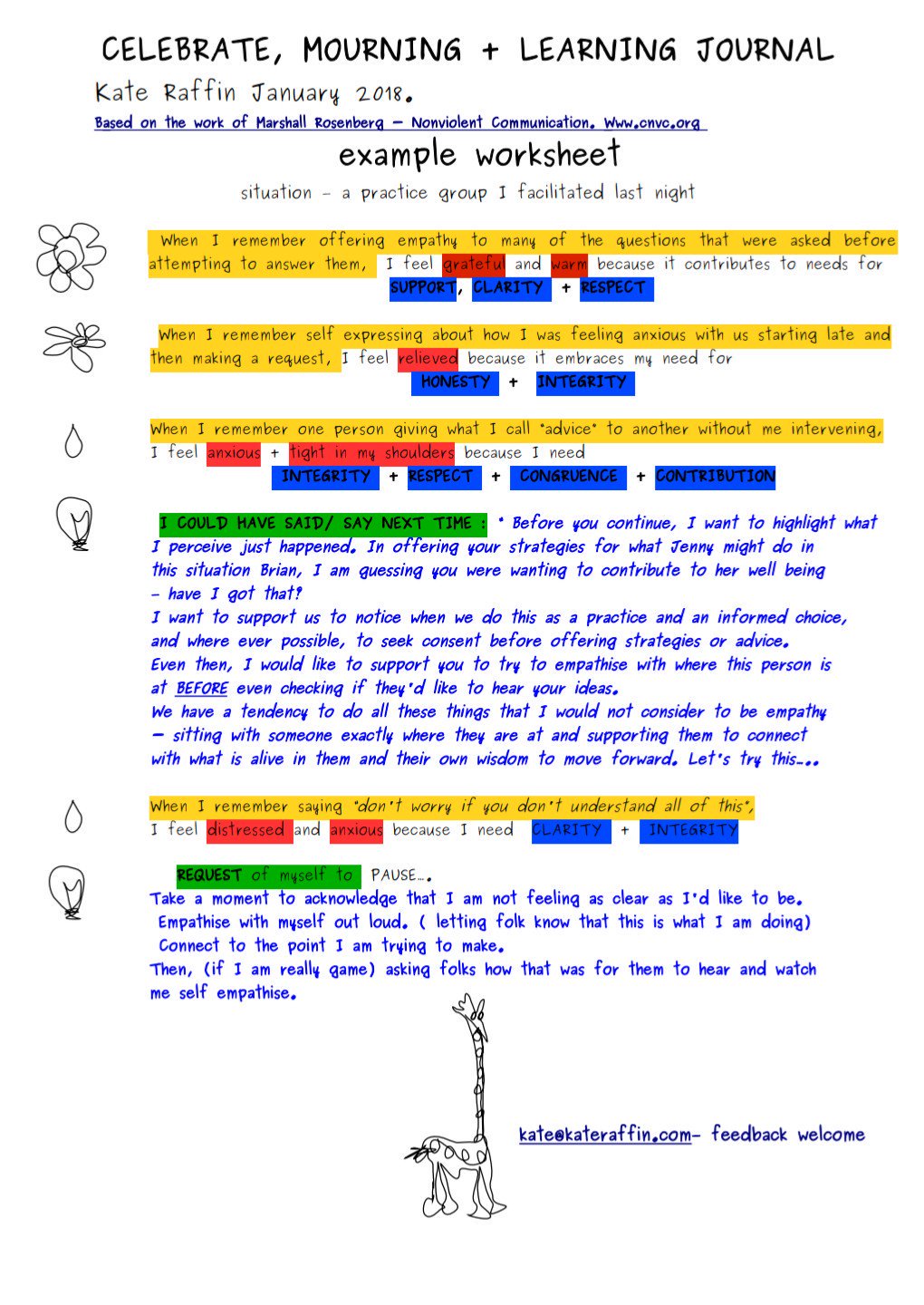
Courtesy of KateRaffin.com & HeartTalkMatters.com

(Via Wiki: Team Naked Pictures of Be a Arthur)
Vimeo video:
Mourn Celebrate Learn Map for Post Mediation & Mediator Self Care

Mourn, Celebrate, Learn (MCL) Conversation Handout
Newt Bailey (@nmbailey): “I have a sense that 90% of Nonviolent Communication is about ‘Self-Connection.’ When using this expression, I’m referring to the practice or process that lives at the root of Inbal Kashtan’s Tree of Life diagram…” (continues via BayNVC)
Mourn/Celebrate/Learn as a Self-Connection process.
Bio-Regions
In the app there are different “bioregions” of human conflict, with different visual images and colors that go with each map to represent a different bioregion. There is also a key emotion that may be present for you that goes with each map. The visual images and emotions are to help you identify, use, and vividly remember each Conversation Map as you apply it to a situation in your life.
MediateYourLifeApp.com/resources
GIVING
The Mediate Your Life app is free and available to everyone who wants it.
The mission is to support a critical mass of people around the world to move towards conflict in their own lives and in the world, with empathic communication and connection.
And we invite and welcome financial support.
By contributing financially you are helping sustain, grow, and evolve Mediate Your Life in the world.
~ John Kinyon










